AD Keyboard Simulate Five Key Module Button Sensor
₹99.00
- Working voltage: working voltage controller
- Data type: analog signal
- Interface type: PH 2.5-3P
AD Keyboard Simulate Five Key Module Button Sensor is an ingenious and highly efficient input device that simplifies the process of reading multiple buttons using only a single analog input pin on a microcontroller, such as an Arduino. This module achieves its simplicity by using a unique resistor ladder network. Each of the five onboard push buttons connects to a different resistor value, creating a unique voltage division when pressed. When you read the analog voltage from the single output pin, the microcontroller receives a distinct voltage level corresponding to a specific button. This design frees up valuable digital I/O pins, making it a favorite for projects that are pin-limited, and streamlines your code for handling multiple user inputs.
Key Features:
- Single-Pin Analog Output: Consolidates five distinct button inputs onto a single analog output line, conserving microcontroller I/O resources.
- Resistive Voltage Division: Utilizes a precise resistor ladder network to generate five unique analog voltage values for reliable button recognition.
- Five Independent Buttons: Features dedicated buttons for Up, Down, Left, Right, and Select, mirroring a common directional keypad layout.
- Microcontroller Compatibility: Works seamlessly with any platform that has an Analog-to-Digital Converter (ADC), including Arduino, Raspberry Pi Pico, and ESP32.
- Compact Design: The small PCB integrates the keys and circuitry, making it easy to mount in a control panel or project enclosure.
Technical Specifications:
- Operating Voltage: 3.3 V to 5 V DC
- Input Type: 5 Push Buttons (Up, Down, Left, Right, Select)
- Output Type: Single Analog Voltage Signal
- Resistor Network: Precision Resistor Ladder
- Output Values: 5 unique analog voltage levels corresponding to the 5 buttons.
- Logic Level: Matches the input voltage (VCC)
Mechanical Specifications:
- Mounting Holes: Typically includes two mounting holes for fixed installation.
- Interface: 3-pin header (VCC, GND, Signal) for simple connection.
- Switch Type: Tactile Push Buttons.
Dimensions:
- Board Length: ~40 mm
- Board Width: ~40 mm
- Button Pitch: Varies, designed for finger operation.
Pinout and Wiring:
- VCC: Power supply input (connects to 5V or 3.3V on the microcontroller).
- GND: Ground connection.
- SIG (Signal/AD): Analog output pin (connects to one of the microcontroller’s analog input pins, e.g., Arduino A0).
- Wiring Note: Only three wires are necessary to fully integrate this module. Connect the SIG pin to an ADC channel, then read the unique digital value (0-1023 on a 10-bit ADC) to determine which of the five buttons the user pressed.
Datasheet Reference:
Commonly Used in:
- Educational Kits: A simple, clear example of analog input and voltage division for teaching electronics.
- Prototyping: Quickly integrate user navigation without wasting I/O pins.
- Pin-Limited Microcontrollers: Essential for ATtiny or other small microcontrollers where I/O pins are scarce.
Applications:
- Menu Navigation: Use the five buttons for controlling settings and scrolling through menus on an LCD or OLED screen.
- Simple Game Controllers: Develop basic retro games or interactive displays requiring directional input.
- Parameter Adjustment: Set temperature, time, or other operational limits in automation projects.
Equivalent Models:
- Keypad Matrix: A traditional solution (e.g., 4×4) that requires more I/O pins but offers more buttons.
- I2C Keypad: A module that uses the I2C bus to save pins, but requires a more complex communication protocol.
Package Includes:
- 1 x AD Keyboard Simulate Five Key Module Button Sensor
Additional information
| Weight | 18 g |
|---|---|
| OUTPUT TYPE | ANALOG |


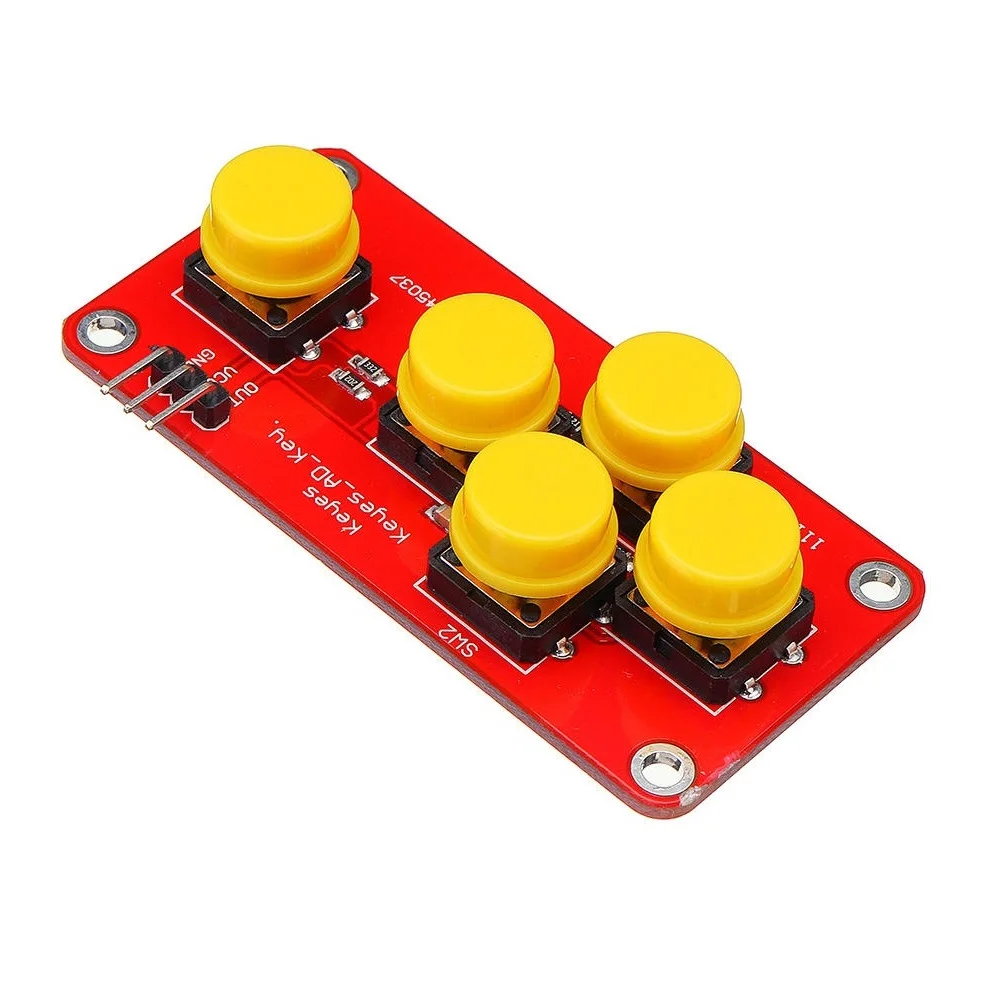
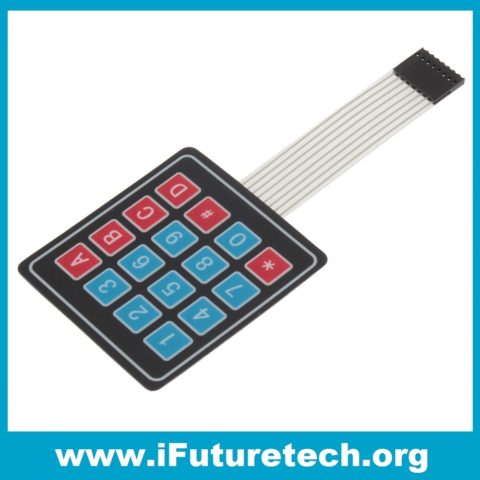
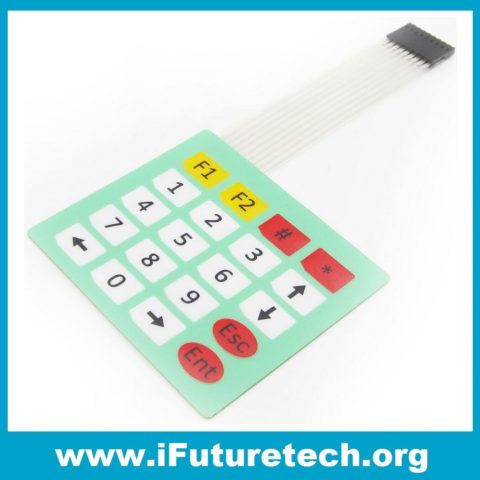
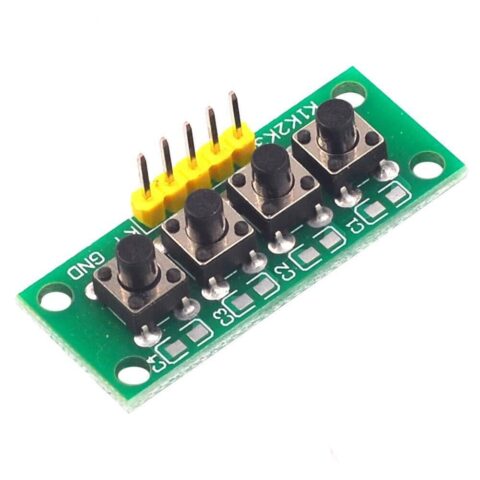
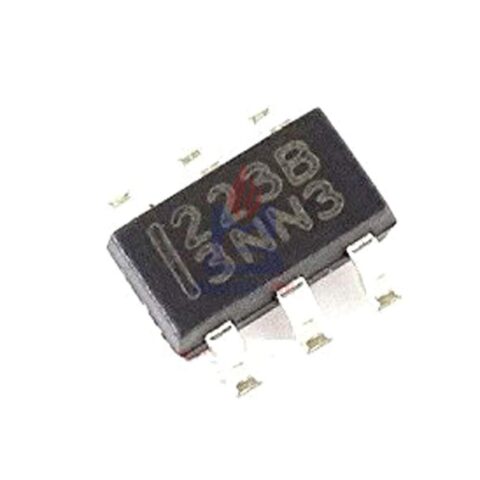

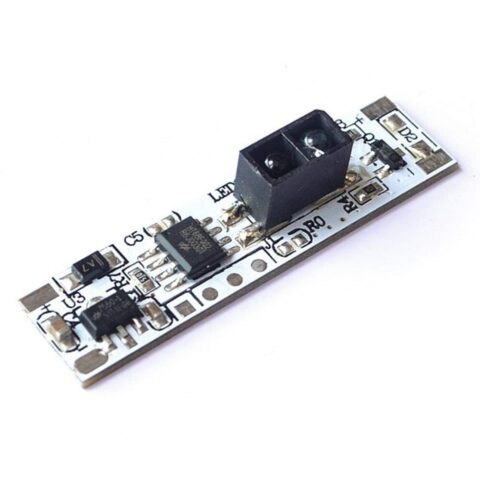
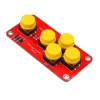
Reviews
There are no reviews yet.